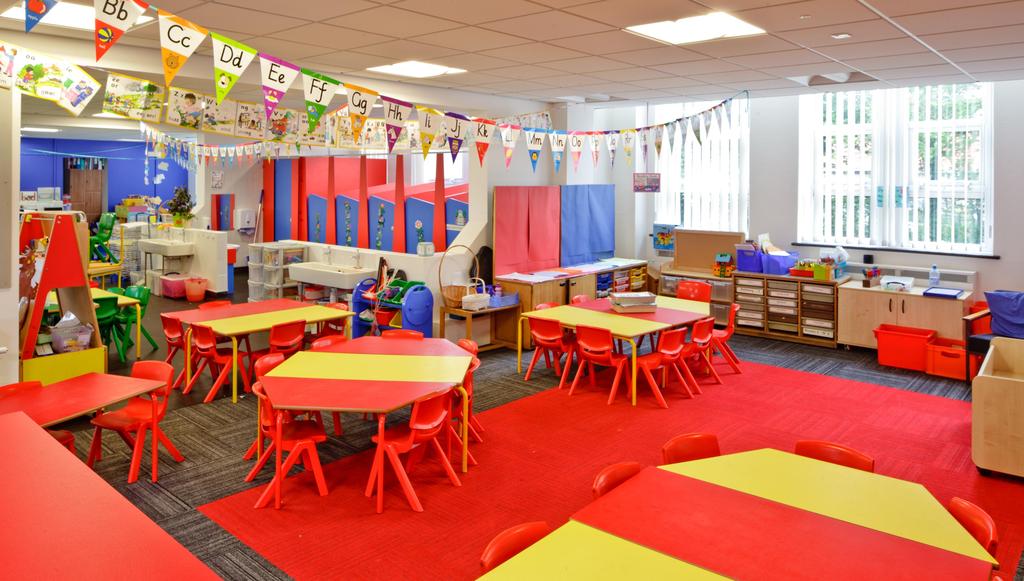After meeting members of the Social Action and Research Foundation think tank, who wrote an open letter to the Sunday Times calling for an investigation into the prevalence of the hijab in British primary schools in September[1], the head of Ofsted, Amanda Spielman, said Ofsted inspectors will question girls in primary schools who wear the hijab to find out why they do so[2]. The decision was made in the form of a recommendation[3]. She stated, “While respecting parents’ choice to bring up their children according to their cultural norms, creating an environment where primary school children are expected to wear the hijab could be interpreted as sexualisation of young girls”[4].
There has been a wave of criticism in response to this decision, including from the secretary general of the Muslim Council of Britain, who said “[i]t sends a clear message to all British women who adopt [the hijab] that they are second-class citizens, that while they are free to wear the headscarf, the establishment would prefer that they do not” and that the decision did not draw on Muslim voices on the topic[5]. 1,136 teachers, academics and faith leaders have also signed a letter calling the decision “a kneejerk, discriminatory and institutionally racist response that will violate civil liberties and create a climate of fear and mistrust in schools, and must be retracted immediately”. It asked for the decision to be reversed while also calling for a “wider conversation” about the sexualisation of young women in Britain[6].
Last month, Ofsted was awarded the UK Islamophobe of the Year award by the Islamic Human Rights Commission[7]. Iftikhar Ahmad, in a forum article on www.therevival.co.uk, writes that Ofsted’s decision to question primary school girls wearing the hijab is part of a continuing trend which has resulted in “[m]any in the Muslim community feel[ing] that Ofsted has targeted Muslim children over the past few years”[8]. This trend includes the Trojan Horse scandal, and a recent case in which a Stoke-on-Trent Muslim-majority school was rated ‘inadequate’ for failing to provide its students with toilet paper for cultural reasons[9].
Iftikhar writes that it is ridiculous that this decision should have been made by Ofsted when there are so many other issues with the British education system, such as socioeconomic inequality and “overworked and underpaid teachers”. She adds the decision represents Ofsted’s pandering to media propaganda, despite them justifying this action as safeguarding[10].
A key criticism of Spielman’s recommendation is that the headscarf is a symbol of faith and modesty, and criticising it as sexualisation is disrespectful to those of the faith it represents[11]. Iftikhar argues that young girls wear the hijab because they understand the importance of modesty in Islamic culture, or because they wish to copy their friends or female relatives who also wear it[12]. The decision is also criticised for giving the wrong message to young people, both Muslim and non-Muslim, about the way in which Muslims can be treated[13].
Iftikhar writes that she hopes Muslim women will unite over the issue, and that it needs to be recognised that other faiths do not face the same amount of stigmatisation as Islam does. She argues that this is despite the fact that studying Islam will make Muslims better British citizens.
[1] The Sunday Times, 2017
[2] BBC News, 2017; Adams, 2017.
[3] Adams, 2017.
[4] BBC News, 2017.
[5] BBC News, 2017.
[6] Halliday, 2017.
[7] Islamic Human Rights Commission, 2017.
[8] Iftikhar, 2018.
[9] Iftikhar, 2018.
[10] Iftikhar, 2018.
[11] Iftikhar, 2018; Halliday, 2017.
[12] Iftikhar, 2018.
[13] Iftikhar, 2018.
Sources
Adams, R. (2017) ‘Inspectors to question primary school girls who wear hijab’. [online] 19 November. https://www.theguardian.com/education/2017/nov/19/school-inspectors-to-question-primary-school-girls-who-wear-hijab. [Accessed 9 January 2018].
BBC New. (2017) ‘Ofsted inspectors to quiz schoolgirls in hijabs’. [online] 19 November. http://www.bbc.co.uk/news/education-42046371. [Accessed 9 January 2018].
Halliday, J. (2017) ‘Ofsted accused of racism over hijab questioning in primary schools’. [online] 28 November. https://www.theguardian.com/education/2017/nov/28/ofsted-accused-racism-hijab-questioning-primary-schools. [Accessed 9 January 2018].
Iftikhar. (2018) ‘Ofsted accused of Islamophobia over hijab questioning in Primary Schools and the toilet papers issue in a Muslim school’. [online] 6 January. http://www.therevival.co.uk/forum/general/13961. [Accessed 9 January 2018].
Islamic Human Rights Commission. (2017) ‘Event Report: Islamophobia Awards 2017’. [online] 5 December. http://www.ihrc.org.uk/news/event-reports/12008-event-report-islamophobia-awards-2017. [Accessed 9 January 2018].
The Sunday Times. (2017) ‘Letters to the Editor’. [online] 10 September. https://www.thetimes.co.uk/article/1a3c2350-9567-11e7-bebd-80ab3cacd299. [Accessed 9 January 2018].






